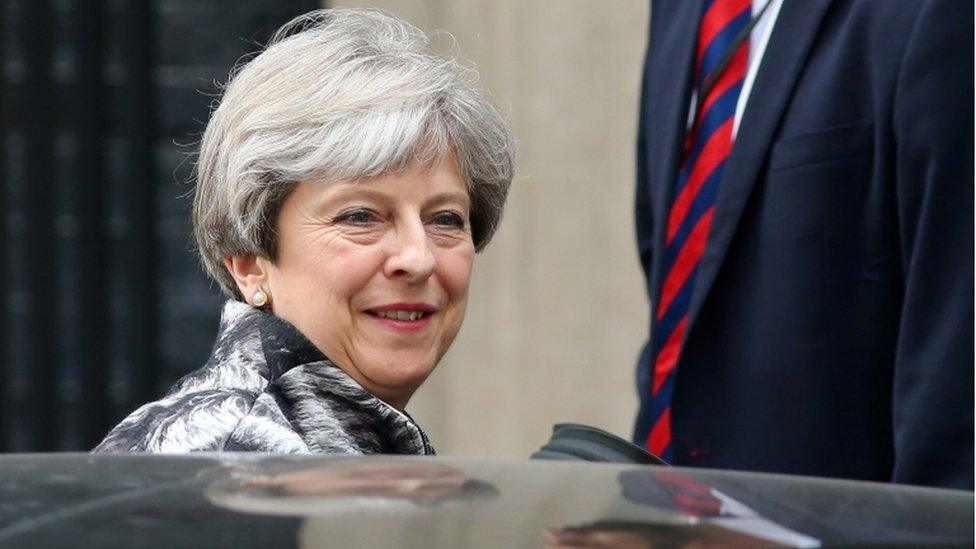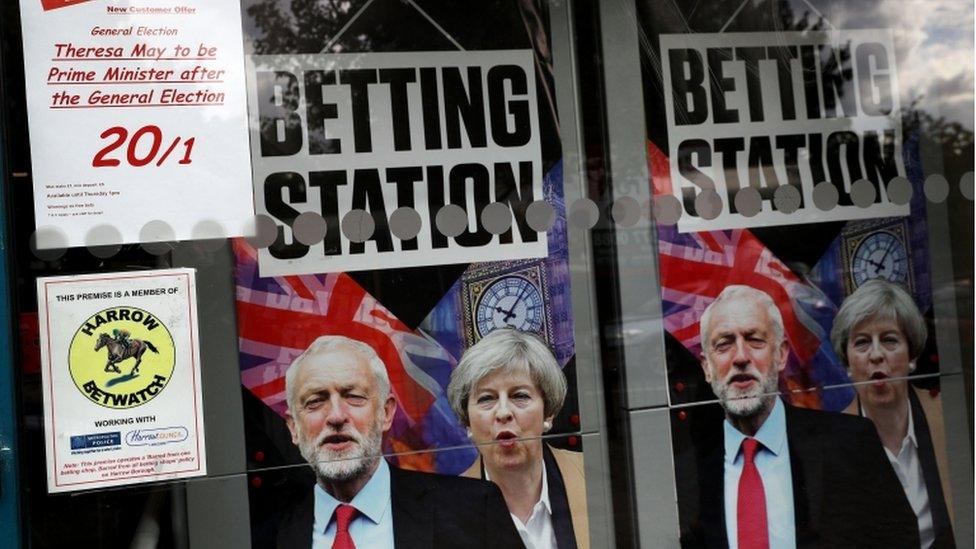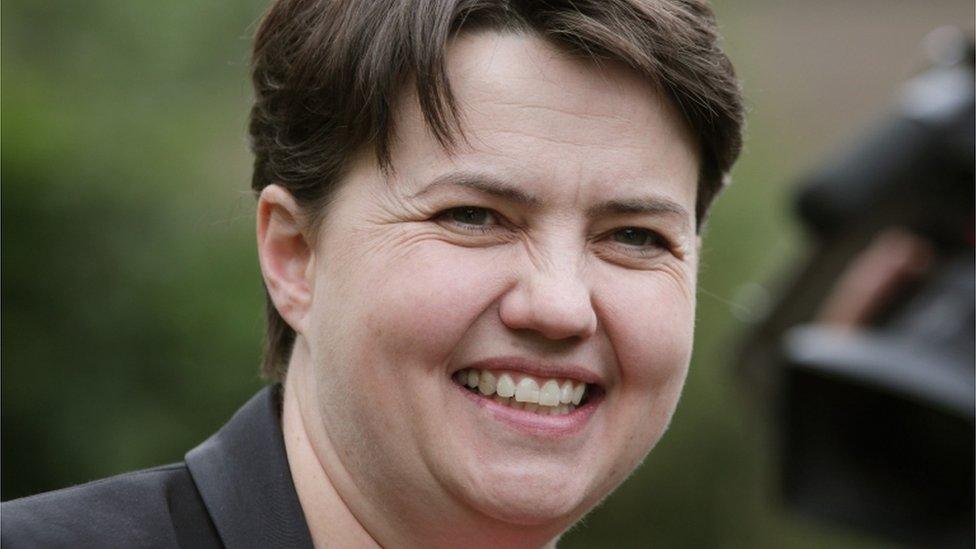Political games of chance and skill
- Published

The prime minister is attempting to win the confidence of backbenchers
With the exception of backgammon, I have little patience with games of chance, especially if cash transactions are involved.
Plus, backgammon is more properly a game of skill: a beginner can win a single game, over the piece an expert will triumph.
As I said on the wireless this morning, I have too much respect for arithmetic to indulge in betting. However, my attention was drawn to a news release in which a bookmaker was apparently offering short odds on both an early rerun General Election - and a subsequent Labour victory.
I confess I know little about such matters (betting, that is, not electoral politics). But it strikes me that the first verdict, that of an early poll, might be influenced somewhat by the second, that of a Labour victory.
As I write, Theresa May is facing the 1922 Committee of Tory MPs - that is, the reduced number returned after her "snap election". She has apparently apologised. Repeatedly. I bet she has. (Or, rather, I don't - but you get the concept.)
The title of the committee, incidentally, refers to another turbulent period in Tory history, when they asserted their autonomy and broke the pact with Lloyd George's Liberals.

Betting on politics can be a high-risk business
But back to Mrs May. Also on the wireless this morning, I opined that Prime Ministers can be tough. They can be tender. What they must not appear to be is ludicrous.
Theresa May was perhaps veering towards that section of the political spectrum when she said she offered "certainty", having caused political turmoil by her election decision and relatively lacklustre campaign.
But she has one big thing going for her, at least in the short term. Those Tories who survived - and, remember, there are more of them than Labour MPs - will not relish the prospect of another early experiment with democracy.
They may not entirely believe the bookies. But they suspect that another "snap" election would be hugely unpopular with weary voters. If said voters were to blame the Tories for stretching their patience still further, they might well opt to reward the Conservatives Party's chief rival, led by Corbyn, J.
Secondly, the Brexit negotiations are about to begin. They are unlikely to be tender. They are pretty well guaranteed to be tough. However, it would arguably be ludicrous, from a UK Government perspective, to interrupt them still further with yet another election.
Now, self-evidently, neither of these factors guarantees that Mrs May stays in office as PM. The Tory strategy may be to steady the ship, to get through a period of squall - and, then, quietly and without fuss, to replace the captain. Without an election, if it is in their hands.
So what is the role of the Scottish Tories in all this? Ruth Davidson met the PM today - and will undoubtedly be influential in the future shape of UK politics.

Scottish Conservatives may have a larger say in UK policies
Will there be a breakaway Scottish Tory Party? In short, no. Not least because Ms Davidson won the leadership on an explicit promise to reject such a scenario.
Will there be a distinct Scottish group of MPs, with their own whip? Yes - but only because they now have sufficient numbers to constitute a group. In the past, the Scottish Tories worked closely together in the Commons. And, yes, with a whip of their own.
So what changes? In the medium term, the Tories are looking - again - at the consequences of devolution for their party structure.
The election underpins the necessity of that search. The Tories in Scotland fought a different campaign on different issues and with a rather different outcome from their chums in the south. (Clue: they gained seats.)
This search may or may not add up to much. Right now, the Scottish Tory MPs seem - and may act - like Team Ruth. But they will be steadily subsumed by Westminster - and will, remember, vote on a standing basis with other Tory MPs. This is no coalition. No confidence and supply deal. They are Conservative and Unionist MPs.
There may, however, be another element. It seems likely that the Scottish Tory party will want an early warning system with regard to issues that may seem uncontentious in London but could cause the party problems in the very different Scottish context. They will want, in short, a bigger say.
Brexit and independence
That applies too to Brexit. Ruth Davidson is saying that she now believes the party should build a consensus, in Westminster and elsewhere. The main driver, she argues, should be the state of the UK economy. Not ideology.
But, again, that is less than a revolution against the UK leadership. It is simple common sense, based upon the fact that the Conservatives now lack a clear mandate, having thrown away their majority in the Commons.
And the SNP? And indyref2? I expect Nicola Sturgeon to focus for the immediate future upon Brexit, arguing that a window of opportunity has now reopened to allow Scottish interests to be pursued.
In the meantime, she will consult over her stance on an independence referendum. Will she abandon independence as an aim? Of course not.
Plus, as noted here previously, she will sustain the concept of a referendum as the avenue to achieve the SNP's long-cherished aim.
But it seems likely that, post consultation and after a period of time, the language re timing will change somewhat.